Care Services
Parkway cares for your loved ones.
Service to your loved ones is at the very heart of our mission to provide quality health care to our residents. Caring is our hallmark. Each resident is assessed by an Interdisciplinary Team generally consisting of Nursing, Therapy, Dietary, Social Services, and Activities Department. Together, with the resident, a personalized care plan is established.
Clinical Care:
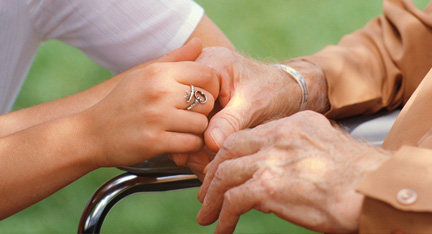 Pain Management
Pain Management
Pain Management employs an interdisciplinary approach for easing the suffering and improving the quality of life of those living with pain.
Medicine treats injury and pathology to support and speed recovery; and treats distressing symptoms such as pain to relieve suffering during treatment and healing. When a painful injury or pathology is resistant to treatment and persists, when pain persists after the injury or pathology has healed, and when medical sciences cannot identify the cause of pain, the task of medicine is to relieve suffering. Treatment approaches to chronic pain may include pharmacologic measures, interventional procedures, physical therapy, physical exercise, and cognitive behavioral therapy.
 Dementia Management
Dementia Management
Some cases of dementia are caused by medical conditions that can be treated and treatment can restore some or all mental function but most of the time dementia cannot be reversed.
If the cause of dementia cannot be treated, the physician will work with the resident and caregiver to develop a plan of care to make life easier and more comfortable. Care plans may include:
- Tips to help the resident be independent and manage daily life as long as possible
- Medicine – While medicines cannot cure dementia, they may improve mental function, mood or behavior
- Support and Counseling – A diagnosis of dementia can create feelings of anger, fear and anxiety. A resident in the early stage of the illness should seek emotional support from family, friends and perhaps a social worker experienced in working with residents who have dementia
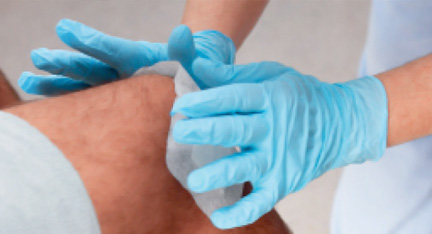 Wound Care Management
Wound Care Management
The skin is a barrier to the outside world protecting the body from infection, radiation, and extremes of temperature.
There are many types of wounds that can damage the skin including abrasions, lacerations and penetrating wounds. Some wounds are deeper and need medical attention to prevent infection and loss of function, due to damage to underlying structures like bone, muscle, tendon, arteries and nerves.
The purpose of medical care for wounds is to prevent complications and preserve function. Our treatment nurse, in conjunction with medical personnel, will oversee the wound from identification to healing with the plan of care and treatment specific to your wound.
Specialty Care:
 Hospice Care
Hospice Care
Hospice Care is care designed to give supportive care to residents in the final phase of a terminal illness and focus on comfort and quality of life, rather than a cure. The goal is to enable the resident to be comfortable and free of pain, so that they live each day as fully as possible. Hospice Care can be provided in a Nursing Home.
The philosophy of Hospice is to provide support for the resident’s emotional, social and spiritual needs as well as medical symptoms as part of treating the whole person.
 Dialysis Treatments
Dialysis Treatments
Dialysis is a process for removing waste and excess water from the blood. Dialysis may be used for those with an acute disturbance in kidney function, progressive but chronically worsening kidney function. Dialysis is an imperfect treatment to replace kidney function because it does not correct the compromised endocrine functions of the kidney. We will ensure those that require dialysis are scheduled and the pre and post conditions are assessed and monitored.
Rehabilitation Services:
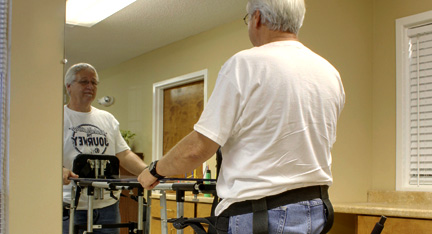 Physical Therapy
Physical Therapy
Our Physical Therapists primary goals are to assess and establish a treatment program to improve strength, endurance, mobility, function, and to relieve pain. The PT programs are tailored to the needs of the individual to ensure the resident is successful in achieving their maximum physical function.
Physical Therapists and Physical Therapy Assistants develop and implement any of the following:
- Neuromuscular interventions which can include static/dynamic balance for sitting and standing activities to decrease falls and prevent further injuries
- Intense training in the areas of bed mobility, transfers, and gait to enhance mobility and function
- Musculoskeletal system interventions that include the goal to reduce inflammation and improve strength for individuals suffering from tendonitis, sprains, fractures and arthritis
- Amputation intervention which includes pre-prosthetic training and prosthetic training
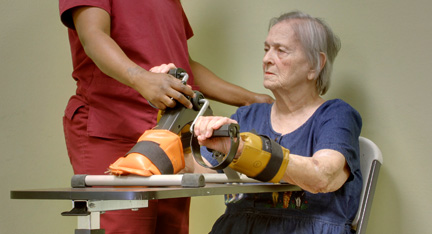 Occupational Therapy
Occupational Therapy
Our Occupational Therapists use goal-directed activities to evaluate and treat the daily living skills needed for residents to fully function in their home, work, and/or community.
Occupational Therapy and Occupational Therapy Assistants develop and implement the following:
- Activities for daily living skills such as dressing, bathing, eating and grooming
- Sensori-Motor intervention to improve strength, endurance, range of motion, coordination and balance
- Therapeutic activities for memory, orientation, cognitive integration and daily living skills
- Perceptual testing and training to maximize functional abilities and safety
- Splint fabrication
- Feeding assessments to establish adaptive equipment needs to maximize functional ability
- Skilled recommendations for seating and positioning devices
- Community re-integration skills and Environmental Adaptations
 Speech Therapy
Speech Therapy
Our Speech-Language Pathologists (SLP) work with residents who have communication and swallowing deficits as a result of congenital defects, strokes injuries, neurological deficits or illness.
SLP’s develop and implement programs to improve:
- Receptive and Expressive Communication
- Dysphagia/Swallowing
- Language
- Articulation
- Cognition/Memory/Orientation
- Voice
- Aphasia
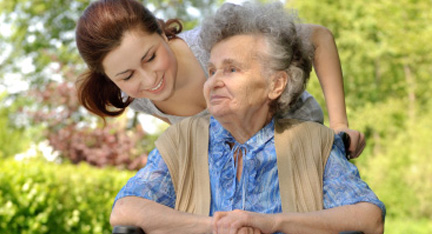 Other services include:
Other services include:
- Ortho Recovery
- Amputation Adaptation
- Prosthesis Training
- Neurological Diagnosis

